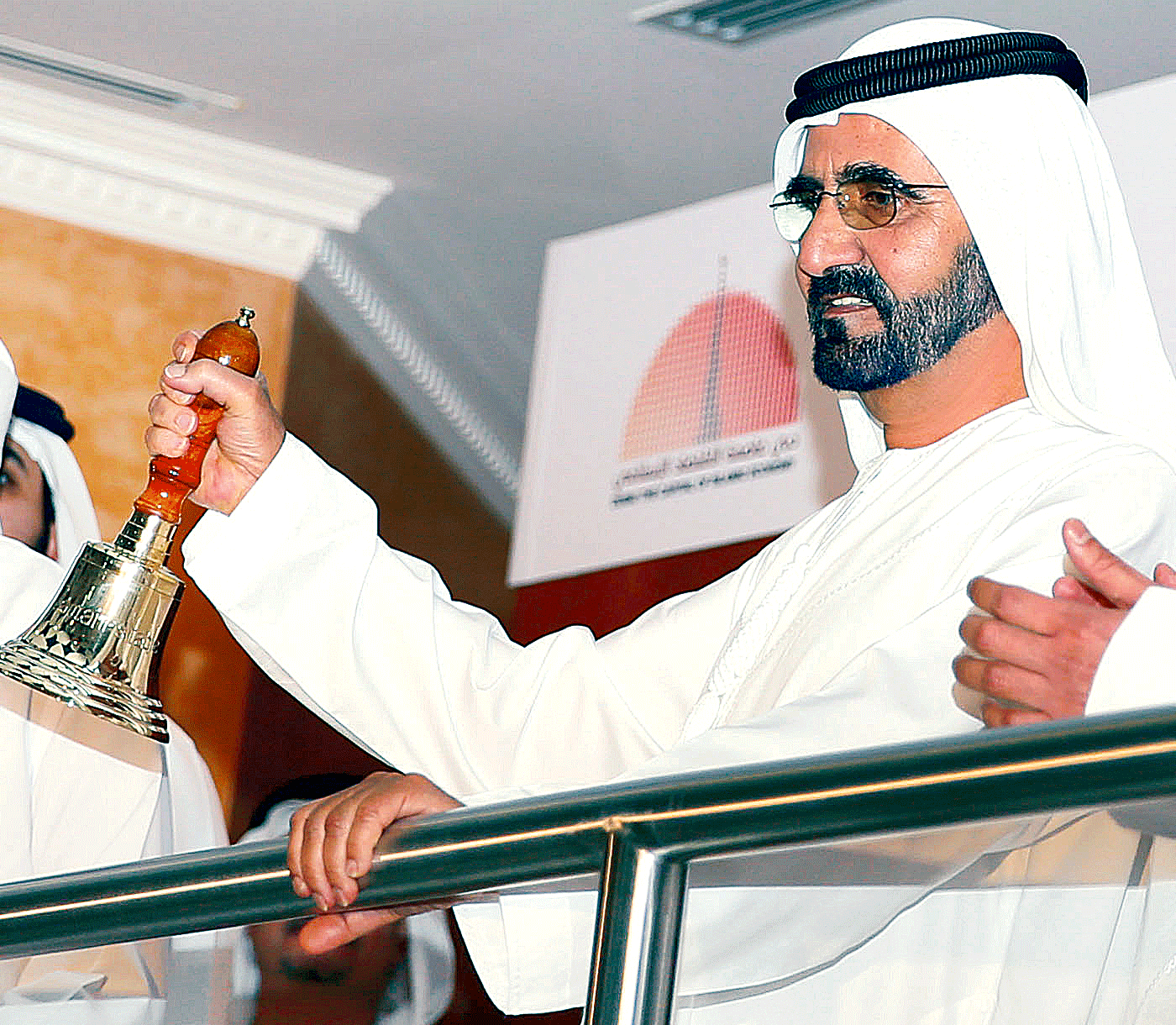
It has long been perplexing that no Gulf centre has been able to equal or rival the Islamic finance hubs at its west and east — despite the region’s history as the birthplace of Islam and its wealth of energy-related capital. This is about to change dramatically, as Dubai lays claim to the post.
Earlier this year, Shaikh Mohammad Bin Rashid Al Maktoum, Vice-President and Prime Minister of the UAE and Ruler of Dubai, announced plans to make Dubai a centre of global Islamic finance and economy. He said: “We have the infrastructure, a strategic location at the heart of the Islamic world, and importantly, a vast knowledge and experience in Islamic economy, Islamic banking, Islamic insurance and sukuk. And we have, above all, the resolve and ambition to achieve our goals.”
The UAE cabinet points out that Islamic economics plays a growing significance in the global business environment, and with the $2.3-trillion (Dh8.44 trillion) Islamic economy and a growing community of 1.6 billion Muslims, the new initiative will promote further investments in Dubai, especially from the Middle East, Africa, and South and South East Asia.
It will also promote further economic diversification in the emirate, with components such as Islamic contract arbitration, commercial standards for Islamic industries, guidelines for halal food manufacturing and linkage with related sectors including transport, storage and handling.
At the end of February, Shaikh Mohammad launched what is seen as the first step — an executive plan to position Dubai as a centre for Islamic bonds, or sukuk. The creation of a centre for issuing, listing and trading sukuk is expected to encourage companies and countries to issue sukuk instead of conventional bonds.
Regulatory body
Another initiative is the creation of a unified government-led Sharia Board. Across the globe, the lack of standards and regulations is considered the main weakness in growth and governance of the industry.
The Thomson Reuters Zawya Sukuk Perceptions and Forecast Study 2013 predicts continued growth of the global sukuk market, with demand set to grow threefold and reach $421 billion in 2017. The global value of sukuk issued as of November 5, 2012 stood at $121 billion, with Malaysia dominating, followed by the GCC. Dubai did not feature as a prominent player, because issuers largely chose to list their bonds and sukuk in overseas bourses.
Since most debt issuers in Dubai are government-related entities, the creation of a Sharia Board will also lure them towards local listings.
Rallying to the call
Dubai-based investment bank Shuaa Capital has announced its foray into Islamic banking through Gulf Finance Corporation, to focus on the needs of small and medium enterprises.
Dubai Multi Commodities Centre (DMCC) has already built strong credentials as an Islamic trading centre, with several sophisticated Islamic financial products. Its $200-million gold sukuk of 2005 was redeemed in 2010, with investors allowed to collect returns in cash or gold. In 2008, DMCC launched the UAE’s first Islamic hedge funds.
DMCC’s latest project is Tradeflow, an ideal solution for the Islamic financing community, with fully electronic treasury murabaha transactions supported by UAE-based assets.
Dubai’s Department of Economic Development is developing an Islamic-compliant standard to classify or categorise registered businesses. The emirate has almost 300,000 registered companies, and it will be up to business owners to re-categorise their companies as either traditional or Islamic companies.
World’s best
In February, Abu Dhabi Islamic Bank was named the Best Overall Islamic Bank in the World by Islamic Finance News. It also won a slew of other awards, but the most significant were Mudaraba Deal of the Year and UAE Deal of the Year — for the world’s first perpetual Tier-1 sukuk, Corporate Finance Deal and the bank’s role as a lead manager and book runner on the Majid Al Futtaim $400-million sukuk transaction.
According to Ernst & Young’s 2012 World Takaful Report, the general and family takaful contributions in the UAE stood at $818 million in 2010 — the third-largest global market after Saudi Arabia and Malaysia. While the UAE has benefited from the sector’s global dynamism, analysts anticipate the industry will continue its uptrend, owing to government initiatives, innovative and diversified product portfolio, strong economic growth conditions, and the increasing demand for Sharia-compliant financial options.
Dubai announced a new asset management firm specialising in awqaf, or Islamic endowments. Noor Awqaf will be owned 60 per cent by Noor Investment Group (an affiliate of the Investment Corp of Dubai) and 40 per cent by Dubai government’s Awqaf and Minors Affairs Foundation and aims to boost returns for awqaf around the globe. The new firm — with $2.7 million paid-up capital — will offer several services including due diligence, financial analysis and assisting awqaf to develop strategic objectives. Noor Awqaf also intends to build a business model to position Dubai as a halal centre. A key target is the $2.1-trillion halal industry in the US.
Currently, sukuk in Dubai are traded on an over-the-counter market and brokers and investors conduct ad hoc deals to buy specific instruments. Nasdaq Dubai’s proposal to create an electronic, automated, fixed-income trading platform will allow access to a transparent and regulated exchange instead.
Setting a standard
The new structure proposes to make use of the Dubai Financial Market’s (DFM) FM X-Stream trading system, already used as the common platform for equity trading on both the DFM and Nasdaq Dubai.
Concurrently, the DFM is finalising sukuk standards that cover both listing and trading. Once these guidelines are official, and the Nasdaq Dubai trading platform is launched, the only two perceived hurdles to building Dubai as an Islamic financial hub will have been crossed.








